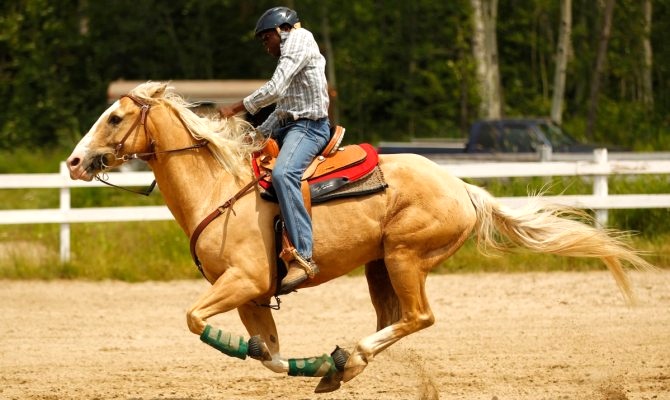It is a difficult question to answer, and one that has no definitive answer. Horses can live for decades, and remain active and healthy at an advanced age. The age at which you should stop riding your horse depends on many factors, including the horse’s fitness and health, your riding ability, and the type of riding you do. Ultimately, the decision to stop riding should be based on what is best for both you and your horse.
Understanding Your Horse’s Age
Before deciding when to stop riding, it’s important to understand how to determine your horse’s age. Horse age is determined mainly by looking at the teeth, which wear down and change as the horse gets older. In general, a horse is considered to be a yearling when it’s between one and two years old, a two-year-old when it’s between two and three years old, and so on.
Factors to Consider
When deciding when to stop riding your horse, there are several factors to consider, including the horse’s fitness and health, your riding ability, and the type of riding you do.
Health and Fitness
One of the most important factors to consider when deciding when to stop riding your horse is its health and fitness. Horses, like humans, become less able to cope with strenuous exercise as they get older. As your horse ages, it may become more susceptible to injuries and illnesses, making it more difficult for them to stay fit and healthy. It’s important to monitor your horse’s health and fitness closely, and talk to your vet if you have any concerns.
Your Riding Ability
Your riding ability is also an important factor to consider when deciding when to stop riding your horse. As you age, you may become less agile and less able to handle the physical demands of riding. You should also consider your experience level, as inexperienced riders may find it harder to handle a more elderly horse.
Type of Riding
The type of riding you do also affects when you should stop riding your horse. If you are involved in competitive riding, you should stop riding your horse as soon as it becomes too difficult or too dangerous for the horse. If you are an experienced rider and are doing low-impact activities such as trail riding or dressage, you may be able to continue riding your horse for longer.
Signs You Should Stop Riding
There are several signs that you should stop riding your horse. These include:
• Changes in behavior: If your horse is showing signs of distress, such as bucking, kicking, or biting, you should stop riding it.
• Physical changes: If your horse is showing signs of physical discomfort, such as stiff joints or poor coordination, you should stop riding it.
• Lack of energy: If your horse is becoming lethargic or is unable to keep up with the pace of the ride, you should stop riding it.
• Difficulty breathing: If your horse is having difficulty breathing, or is coughing or wheezing, you should stop riding it.
Alternatives to Riding
If you decide to stop riding your horse, there are still plenty of ways you can continue to enjoy its company. You can groom and brush your horse, and even learn how to do basic horse care tasks such as trimming hooves or administering first aid. You can also enjoy time with your horse by taking it for walks or going on countryside hacks.
Conclusion
Deciding when to stop riding your horse is a difficult decision, and one that should be based on what is best for both you and your horse. You should take into account your horse’s health and fitness, your riding ability, and the type of riding you do, and be aware of any signs that it’s time to stop. If you do decide to stop riding, there are still many ways to enjoy time with your horse, from grooming and brushing to going for walks.



